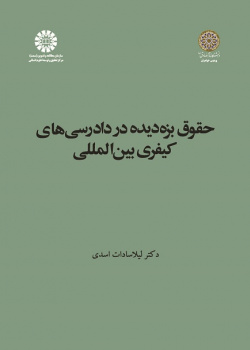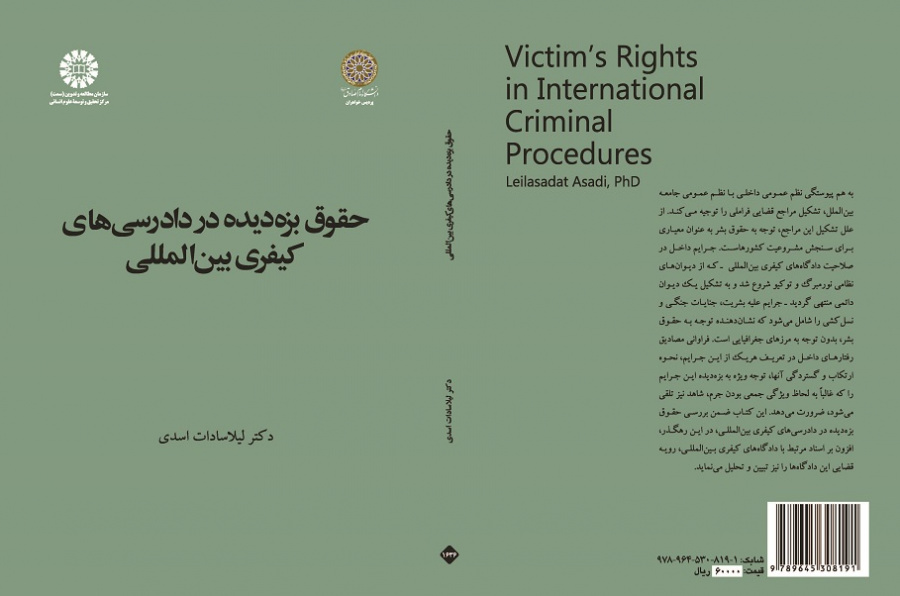

Victim's Rights in International Criminal Procedures
The interconnectedness of domestic public order with the public order of the international community justifies the formation of transnational judicial authorities. One of the reasons for the formation of these authorities is paying attention to human rights as a criterion for measuring the legitimacy of countries. Domestic crimes under the jurisdiction of the International Criminal Courts - which began at the Nuremberg and Tokyo Military Courts and led to the establishment of a permanent tribunal - include crimes against humanity, war crimes, and genocide that reflect human rights, regardless of geographical boundaries. The abundance of instances of domestic behaviors in the definition of each of these crimes, how they are committed, and their extent, necessitates special attention to the victim of these crimes, which is often considered as a witness in terms of the collective nature of the crime. This book, while examining the rights of victims in international criminal proceedings, in this way, in addition to documents related to international criminal courts, also explains and analyzes the judicial procedure of these courts.





